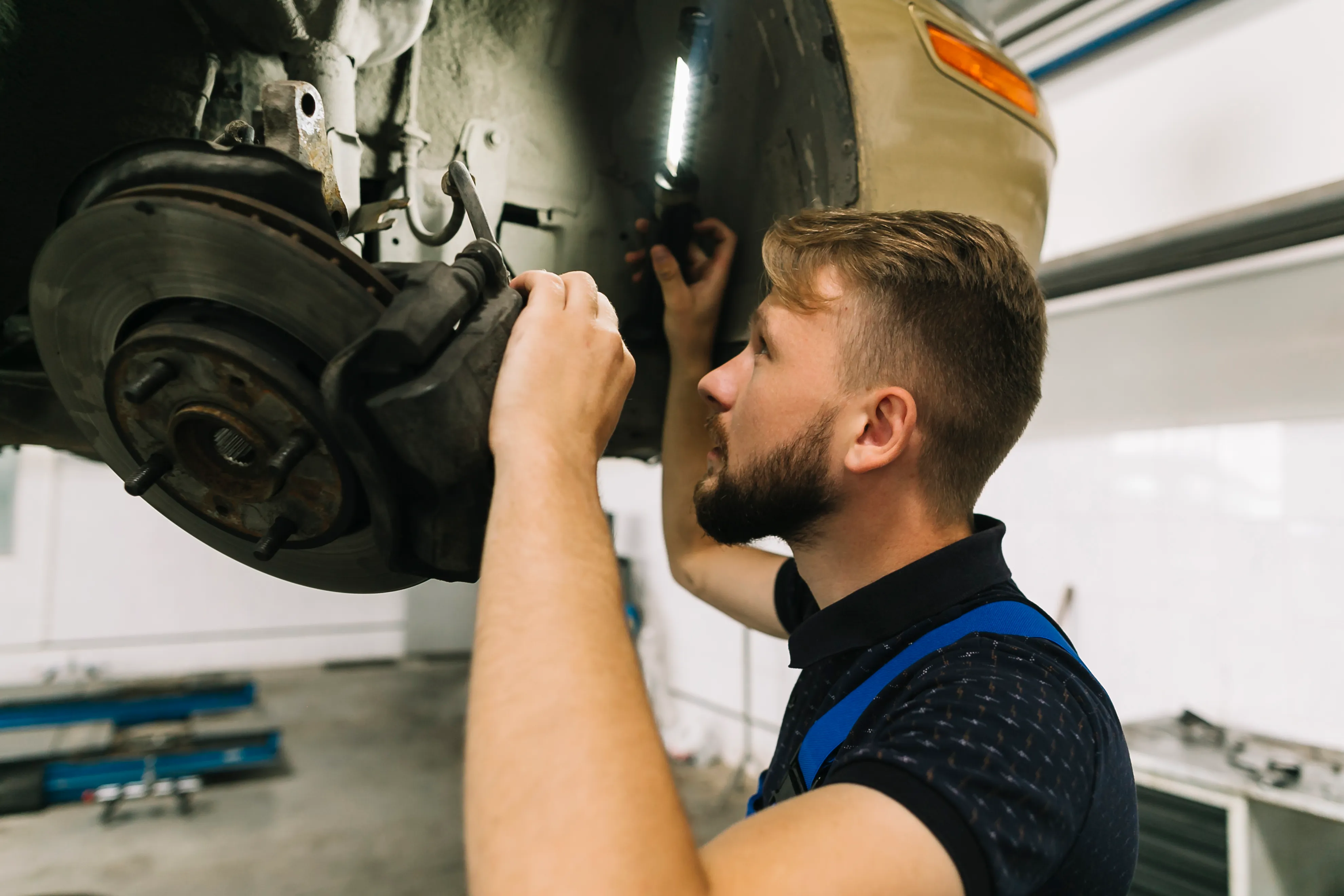Community
Brake Pads Replacement Cost Guide: Everything You Need to Know
Maintaining your vehicle’s braking system is crucial for both safety and performance. Over time, brake pads wear down and require replacement to ensure optimal stopping power. Understanding the costs associated with brake pad replacement is essential for responsible car ownership.

In this comprehensive guide, we’ll delve into the factors influencing brake pads replacement costs, explore different types of brake pads, and provide tips on how to minimize expenses without compromising safety.
Factors Influencing Brake Pads Replacement Costs

Type of Brake Pads:

One of the primary benefits of roadside assistance is towing. If your vehicle cannot be fixed on the spot, the service provider will tow your car to the nearest repair shop or a location of your choice. This can save you the hassle and cost of arranging a tow truck.
Vehicle Make and Model:

The make and model of your vehicle play a crucial role in determining brake pad replacement costs. Luxury or performance vehicles often require specialized brake pads, which can be more expensive than those used in standard cars. Additionally, certain vehicles may have more complex brake systems, influencing labor costs during replacement.
Labor Costs:
The labor costs associated with brake pad replacement can vary depending on the mechanic’s hourly rate and the complexity of the job. Some vehicles have more accessible brake systems, making replacement quicker and less expensive. However, in cases where brake components are harder to reach or require additional disassembly, labor costs may increase.
Brake System Components:

Brake pads are just one part of the braking system. If other components, such as rotors or calipers, need replacement or resurfacing, the overall cost will be higher. It’s essential to assess the entire braking system to ensure all components are functioning optimally.
Tips for Minimizing Brake Pads Replacement Costs
Regular Maintenance:

Consistent and proactive maintenance can extend the lifespan of your brake pads. Regularly inspect your braking system for any signs of wear or issues. Addressing problems early can prevent further damage and reduce overall repair costs.
DIY vs. Professional Installation:

While some car enthusiasts may opt for a do-it-yourself approach, brake pad replacement is a task best left to professionals. Incorrect installation can compromise your safety. However, if you have experience and the necessary tools, replacing brake pads yourself can save on labor costs.
Comparing Quotes:

It’s wise to obtain quotes from multiple mechanics or auto shops before committing to brake pad replacement. Prices can vary, and getting several estimates ensures that you’re not overpaying for parts or labor.
Choosing Quality Parts:

While it may be tempting to opt for the cheapest brake pads available, investing in quality parts can save you money in the long run. High-quality brake pads tend to last longer and perform better, reducing the frequency of replacements.
How Service My Car Assists You ?
Have you reached a point where you're questioning, "Where can I find the top mot garage in Manchester ?" Service My Car platform offers the best MOT, that allows you to compare quotes from reputable mechanics. With expert guidance and quality assurance, we empower you to make informed decisions about your vehicle’s well-being.
Skip the hassle of multiple calls and visits — explore, compare, and schedule services effortlessly. Your safety is our priority; we connect you with certified professionals. Whether you prefer DIY or professional assistance, find the perfect balance of quality and affordability at Service My Car.
Conclusion
Brake pad replacement is a critical aspect of vehicle maintenance that directly impacts safety and performance. Understanding the factors influencing replacement costs empowers car owners to make informed decisions. By considering the type of brake pads, vehicle make and model, labor costs, and the condition of other brake system components, you can navigate the process more effectively.
While cost is undoubtedly a consideration, prioritizing safety should be the primary concern. Regular maintenance, proactive inspections, and choosing quality parts contribute to a reliable braking system that ensures you can stop safely when it matters most. By following these guidelines, you can strike a balance between cost-effectiveness and responsible car ownership.
